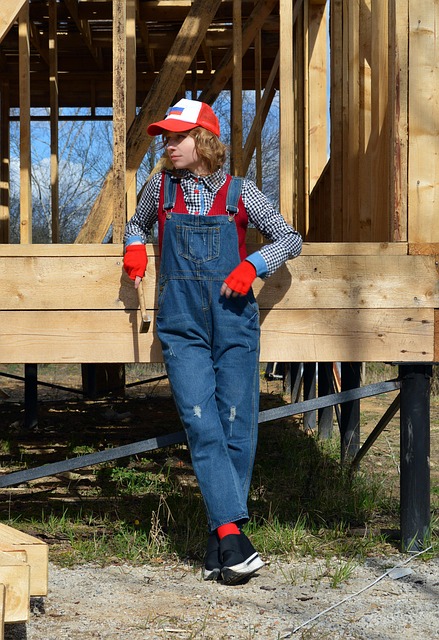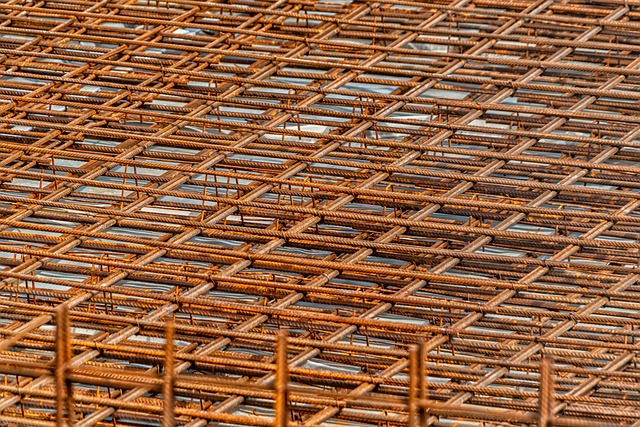Holistic Foundation Inspections offer a comprehensive, proactive approach to residential foundation repair, evaluating more than visible damage. By considering soil conditions, drainage, and environmental factors, these inspections predict potential issues in areas with variable weather or unstable soils. This method identifies subtle signs of strain early, ensuring long-term stability and peace of mind for homeowners through targeted solutions. Regular holistic inspections prevent costly repairs by catching minor cracks and moisture intrusion promptly, emphasizing the importance of proactive maintenance for structural integrity.
Holistic Foundation Inspections: Uncovering the Strength of Your Home’s Base
Are you a homeowner concerned about your residence’s structural integrity? Look no further than comprehensive holistic foundation inspections. This deep dive into your home’s underpinnings goes beyond surface-level checks, addressing all aspects crucial for residential foundation repair.
From identifying subtle issues like cracks and uneven floors to recommending long-term solutions, this article guides you through every step. Discover the benefits of a holistic evaluation, learn about common foundation problems, and gain insights into cost-effective strategies for maintaining your home’s structural health.
Understanding Holistic Foundation Inspections: A Comprehensive Approach

Holistic Foundation Inspections go beyond the surface to assess a property’s structural integrity. Unlike traditional methods focused solely on visible damage, this comprehensive approach examines the entire foundation, including unseen elements like soil conditions, drainage, and the interaction between the structure and its surroundings. By considering these factors, professionals can predict potential issues and implement effective strategies for residential foundation repair.
This method is especially crucial in areas prone to varying weather conditions or soil instability. By adopting a holistic perspective, inspectors can identify subtle signs of strain that might indicate larger problems down the line. This proactive approach not only enhances the accuracy of repairs but also ensures the long-term stability and safety of homes, providing peace of mind for homeowners.
The Importance of Residential Foundation Repair

A solid and stable foundation is the backbone of any residential structure, ensuring the safety and longevity of a home. This is where Residential Foundation Repair comes into play as an essential aspect of property maintenance. Over time, various factors can contribute to foundation damage, such as shifting soil, improper construction, or extreme weather conditions. These issues may go unnoticed for years until they manifest as cracks in walls, uneven floors, or doors that stick.
Early detection and prompt action are key when it comes to Residential Foundation Repair. By addressing foundation problems at their source, homeowners can prevent further damage and costly repairs in the future. A holistic inspection involves a thorough evaluation of the entire foundation, including structural integrity, moisture intrusion, and settlement issues. This proactive approach allows for targeted solutions, ensuring the home’s stability and providing peace of mind for its occupants.
Identifying Common Foundation Issues in Homes

Identifying common foundation issues is crucial for anyone considering residential foundation repair. Some of the most frequent problems include cracks in the foundation walls, uneven floors, and doors or windows that stick or swing when opened. These signs often indicate structural damage caused by factors like poor soil conditions, improper construction, or shifting earth due to changes in humidity levels.
Proper inspection methods are vital to uncover these hidden issues early on. Professional inspectors use advanced tools such as moisture meters and laser level transits to detect subtle anomalies that may be missed during a visual assessment. By addressing foundation problems promptly, homeowners can prevent further deterioration and costly repairs down the line, ensuring the longevity and stability of their residences.
Techniques Used in Holistic Foundation Inspection

Holistic Foundation inspections go beyond the surface to assess a residential property’s structural integrity. Inspectors employ a multi-faceted approach combining visual examinations, non-invasive testing, and advanced technology. This comprehensive strategy involves meticulous hand inspection for signs of cracking, shifting, or water damage visible on foundations, walls, and surrounding structures. Additionally, they utilize tools such as moisture meters to identify humidity levels indicative of potential issues and ground-penetrating radar (GPR) to reveal hidden cracks or voids beneath the surface, allowing for early detection of problems that could lead to costly Residential Foundation Repair.
Benefits of a Holistic Evaluation for Your Property

A holistic evaluation offers a comprehensive approach to understanding your property’s structural integrity, especially focusing on the foundation. Unlike traditional inspections that might overlook subtle issues, this method scrutinizes every aspect, from the visible signs of damage to hidden problems beneath the surface. By assessing factors like soil conditions, moisture levels, and the overall condition of the foundation walls, it provides an early warning system for potential residential foundation repair needs.
This thorough process is invaluable for several reasons. It enables proactive maintenance by identifying minor issues before they escalate into costly repairs. Additionally, it gives homeowners a deeper understanding of their property’s unique challenges, allowing them to make informed decisions about future care and investment. With a holistic evaluation, you gain peace of mind, knowing your home’s foundation is in good hands and that any necessary residential foundation repair work will be addressed effectively.
Preparing for the Inspection Process

Preparing for a holistic foundation inspection is crucial for homeowners seeking seamless residential foundation repair. The process involves a comprehensive evaluation, so it’s essential to ensure your property is ready. Start by decluttering and giving the inspector clear access to all areas, especially those beneath fixtures or floorboards. This step allows for an unobstructed view of potential issues.
Next, be mindful of any recent changes or unusual activity around the foundation. Inspectors will assess structural integrity, so disclosing modifications like recent renovations or additions is vital. Additionally, address any known problems with drainage or water seepage in the area; proper waterproofing and drainage systems contribute to a healthier foundation.
Interpreting Inspection Results and Recommended Repairs

After a comprehensive holistic foundation inspection, interpreting the results is a crucial step in understanding the health of a property’s structural integrity. The report will detail any potential issues, from cracks in the foundation walls to uneven floor levels. Each observation comes with a corresponding recommendation for repairs or further action.
For instance, if the inspection uncovers minor cracks, the report might suggest monitoring them for growth and considering a residential foundation repair service for more extensive cracks. This proactive approach ensures that even the tiniest signs of trouble are addressed before they develop into costly structural damage, highlighting the importance of regular inspections in maintaining a well-built home.
Cost-Effective Solutions After Foundation Assessment

After a comprehensive holistic foundation inspection, identifying issues is the first step towards effective solutions. Fortunately, many problems can be addressed through cost-effective means, preventing the need for extensive and expensive residential foundation repair later on. For example, minor cracks in concrete or brickwork can often be repaired with specialized epoxies or injection techniques, which are more affordable than full-scale reconstruction.
Regular maintenance and timely intervention play a vital role in mitigating costs. Simple precautions like directing downspouts away from the foundation, monitoring for moisture intrusion, and ensuring proper drainage can prevent further damage. By adopting these practices, homeowners can catch potential issues early on, making repairs more manageable and less expensive.
Maintaining Your Home's Structural Integrity: Long-Term Strategies

Maintaining your home’s structural integrity is a long-term commitment that goes beyond regular upkeep. Holistic foundation inspections play a pivotal role in this regard, identifying potential issues early on and guiding tailored strategies for residential foundation repair. By adopting proactive measures, homeowners can safeguard their properties from the insidious effects of settling, shifting soils, and other environmental factors that could compromise structural soundness.
Focusing on preventive care involves regular monitoring of any cracks, unevenness, or signs of water damage. Addressing these issues promptly through expert assessments and targeted repairs can prevent minor problems from escalating into major, costly damages over time. Investing in a robust foundation inspection and implementing recommended strategies is, therefore, a strategic move towards ensuring your home’s longevity and structural integrity.
